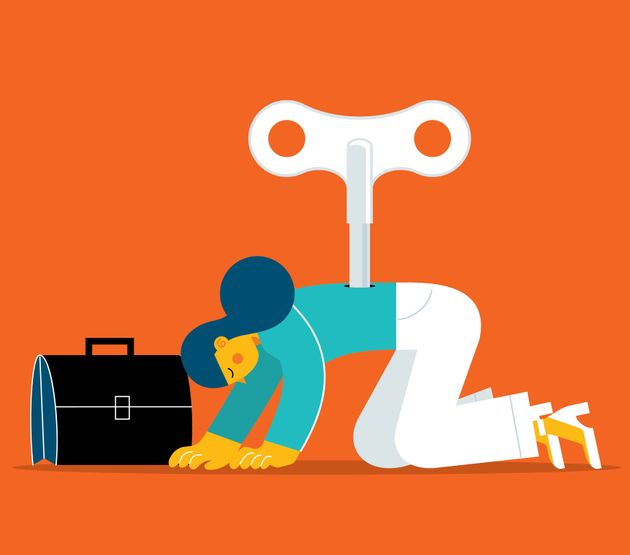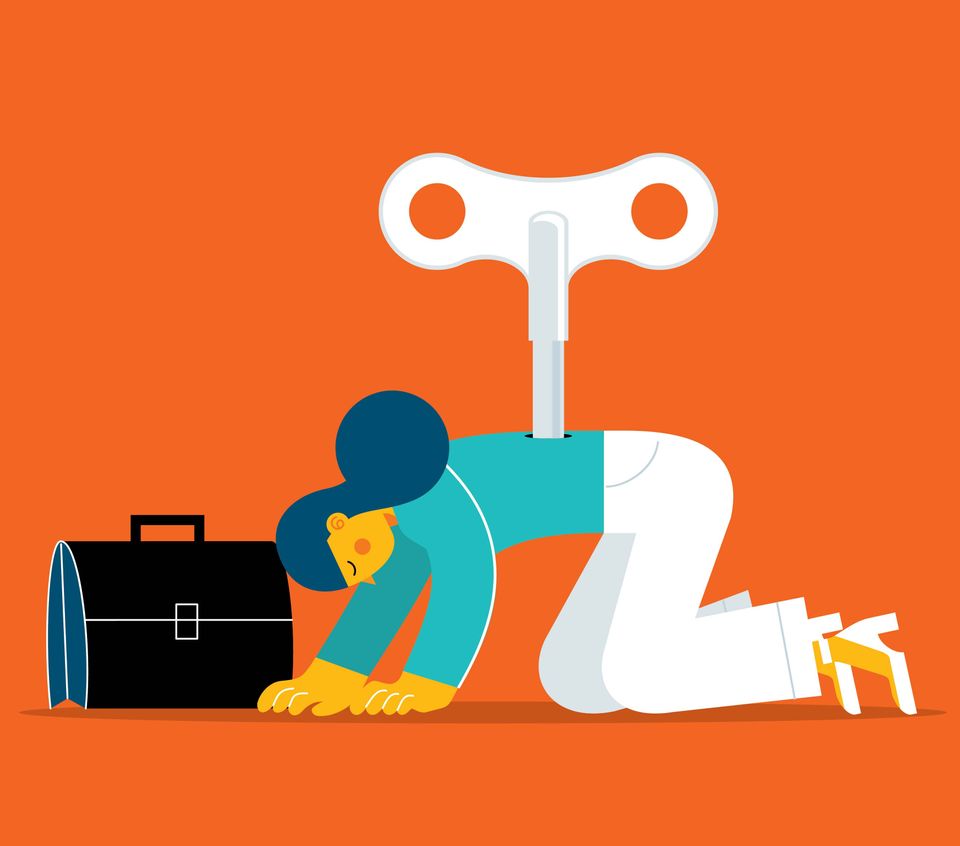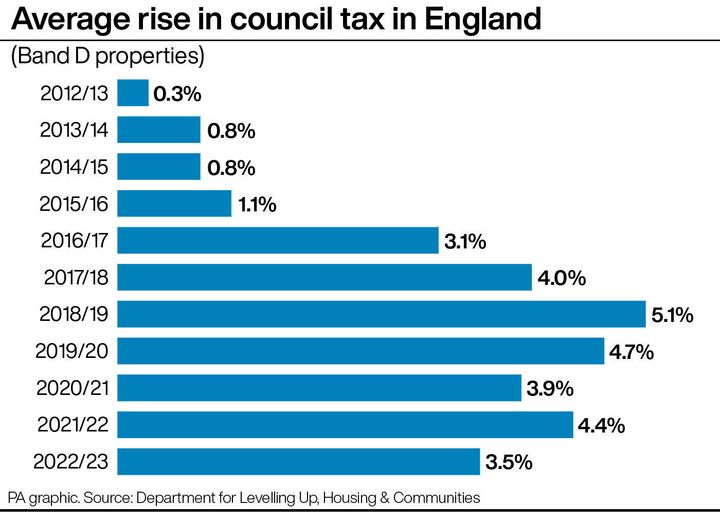Your 20s can be a tumultuous time of discovery, and it can help to hear from people on the other side.
Take it from me. I’m in my 30s. I don’t have regrets about the detours and pivots my career has taken, but if I could go back in time to the previous decade, I would tell my younger self to negotiate her starting salary when she gets that one job offer — because the thousands lost compared to her peers will sting later.
Back then, I was so grateful to have a job, I didn’t realise employers should also be grateful to have me.
And I would let her know that the people you work with matter just as much, if not more, than the work you end up doing. You can’t get good work done without mutual respect. Caring co-workers kept me sane during long shifts in an unstable industry while bad colleagues drove me out of projects I enjoyed doing. Learning who will be a bigger headache to work with means learning to trust your instincts, and for a long time, I didn’t trust mine.
Those are my two pieces of hard-won wisdom –– what are yours?
If you need inspiration, listen to these experts. HuffPost reached out to writers, artists, creatives, entrepreneurs, and professionals in STEM who are also in their 30s about the career advice they wish they could tell their 20-something selves. They shared thoughtful, nuanced advice that you can take with you, regardless of where you are in your career journey.
Some answers were lightly edited for clarity and length.
1. Don’t put stock into what people think of your potential.
“I am currently in my 30s, and I would tell my 20-year-old self to not put stock into what people think of my potential. Directly, I’d say: Raise that chin, girl, the best thing for you will eventually be your ability to disregard everything they taught you to ‘succeed,’ including the ‘right’ path towards that goal. You’re going to forge a path all on your own, so nurture your passions and you’ll soon see how it will pay off. Shit feels hard right now, but all these experiences will fuel your writings. Feel your feelings and don’t be scared of your voice. Your writing will free you.” ―Prisca Dorcas Mojica Rodríguez, founder of Latina Rebels and author of “For Brown Girls with Sharp Edges and Tender Hearts: A Love Letter to Women of Colour”
2. There is no such thing as a dream job.
“I wish I’d been told in my 20s that there is no such thing as a ‘dream job’ and that I should think hard about what success really means to me. Back then, I thought my dream job was to simply rise higher in the ranks of the company or start my own business (which I later did, and spoiler alert: It was still not a ‘dream job!’).
“I thought it meant a specific title or reaching a specific salary goal. It’s only recently that I’ve realised that success and fulfilment in a job (to me) means having continuous growth and learning, connecting with others, having time to think and create deeply, and feeling proud of the work I put out. It also means having things outside of work that inspire me and bring meaning to my life. Work can be fun and fulfilling, but it can’t be everything.” ―Alisha Ramos, founder of Girls’ Night In
3. Things take time, so make time for life, too.
“I’d give her a big hug and I’d tell her: Go toward what you like to do, not what you think you should do. Make friends you love and make art with those friends. Focus on what you can control. Create comedy that makes you laugh and art that feels real to you, and once you’ve done that, do it again. Things take time, so make time for life, too.” ―Alyssa Limperis, comedian and actor
4. Figure out the unspoken rules of your desired profession.
“For those in their 20s, my advice is this: Figure out who you want to impress—and what they will be impressed by. Every profession has its tried and tested paths. … The sooner you uncover the unspoken rules of your desired profession, the sooner you can start focusing your time on the highest-impact activities — and the sooner you’ll reach your career goals.” ―Gorick Ng, a career adviser at Harvard University and the author of “The Unspoken Rules: Secrets to Starting Your Career Off Right”
“So many parts of my success [have] been boiled down to doing the right thing by my relationships.”
– Jamal Robinson, director of sales and marketing for New England Brewing Co.
5. Respect everyone because you never know who will be in your corner.
“My biggest piece of advice I think would be centered around building authentic honest relationships and valuing them. So many parts of my success [have] been boiled down to doing the right thing by my relationships.
“…Put in the time to be the best at what you do, so that the value of your talents [is] always seen. The opportunities that relationships offer won’t matter if you can’t shine.
“…Spend time on the little things and be true to your word. Relationships of any kind are a social contract in communication and expectations. If you become known as someone who will do what you say they will do and are honest about what you can’t do or don’t know, you will fulfill that social contact every time. It’s valuable for people to know what they can expect from you.
“People would much rather you underpromise and overdeliver than overpromise and underdeliver. But if you do promise something, do the things necessary to make it happen, even if that means sacrificing some other things. The goal here is that next time you are only promising what you can do without sacrificing other relationships. Unfortunately, sometimes the only or best way to learn is from experience.
“…Value and respect everyone! You never know who will be the one in your corner or whose life you can change in the process. It’s not always the most accomplished people in the relationship that bring the most value.” ―Jamal Robinson, director of sales and marketing for New England Brewing Co.
6. Resist ableist pressures.
“Society will pressure you to act and look non-disabled. Resisting these ableist pressures will feel hard at first, but it’s critical you define for yourself how success looks and feels.” ―Haben Girma, human rights lawyer and author of “Haben: The Deafblind Woman Who Conquered Harvard Law”
7. Understand you can reinvent yourself as many times as you want.
“I started this competitive road cycling journey almost exactly 10 years ago. I spent a lot of time worried about people who were being very mean and negative about my big dreams.
“I also had no idea what I was doing and frequently felt anxiety about figuring out next steps. I think my advice from my 36-year-old self to my 26-year-old-self would be, ‘Don’t worry so much about the folks who don’t believe in what you’re doing, you can reinvent yourself as many times as you want, and trust your instincts and pay attention, the next step will come to you!’ Honestly, this is advice I can still use today.” ―Ayesha McGowan, professional road cyclist for Liv Racing TeqFind
“The life you imagined when you were in your 20s can drastically shift when you’re in your 30s.”
– Carla Stickler, Spotify web engineer and Broadway performer
8. Don’t be afraid to travel if you can.
“Be open to new opportunities. Don’t be afraid to travel if you can. The market for what we do is expanding. Don’t miss out on good money and good life experiences for what is comfortable.” ―Demetrious Parker, microbiologist
9. Take risks.
“Your 20s is a great time to take career risks. It’s easier to bounce back from failures and course-correct at this stage of life.” ―Martinus Evans, marathoner, running coach and founder of Slow AF Run Club
10. It’s good to acknowledge when you’ve outgrown a dream.
“The thing you got your degree in doesn’t have to be the thing you do for the rest of your life. It’s never too late to change your mind, you’re never too old to shift gears, and there’s never a bad time to start something new. The life you imagined when you were in your 20s can drastically shift when you’re in your 30s. It’s good to acknowledge when you’ve outgrown your dreams or when they’re no longer serving you in the way you had hoped.
“It can be scary to dive into something unfamiliar later in life, but it can also be extremely rewarding. You may have to learn new skills or give up old comforts, but don’t let that stop you; life is longer than you think. Even tattoos and marriages aren’t permanent ― trust me, I know from experience.” ―Carla Stickler, Spotify software engineer and Broadway performer
11. Start therapy sooner.
“Start therapy sooner so that you can recognise when your childhood wounds are being exploited by an employer and their reward system. If you’re used to ‘enduring’ through a lot of difficult things growing up, you’re more likely to normalise toxicity and endure an experience that’s negatively impacting your health.
“If you’ve struggled with feeling like you’re enough or if you grew up believing that you have to prove to someone that you are valuable, you’re more likely to allow companies and managers to exploit your talent. So, I’d tell myself: ‘Vivianne, you don’t have to endure anymore, and everything will be OK. Go design the life and career that you want.’” ―Vivianne Castillo, UX researcher and founder of HmntyCntrd, a community supporting UX and tech professionals
12. You are most valuable in your career when you understand what you bring to the table.
“Spend a significant amount of time working on yourself. And be open-minded and honest about it. Learn who you are, what you’re good at, bad at, what motivates you and keeps you happy and productive. Learn what you’re passionate about. Learn why you think and react the way you do.
“….You are the most valuable in your career and your relationships when you understand who you are and what you bring to the table. If you don’t know yourself, you’re asking a lot for someone else to know.”
“The truth is, most people live their lives working a job because they feel like they have to and don’t know what their passions are or who they are. But the percentage of people who do know these things are the percentage that is the most happy, fulfilled and successful.” ―Robinson
“I wish someone had told me that respect and prestige are not the same thing — respect is more important.”
– Caroline Cala Donofrio
13. Get a decade’s head start on developing your leadership by working with a coach.
“Behind every inspiring leader is a professional coach, therapist, mentor, you name it. I wish I started working with a professional coach early on in my career to get a decade’s head start on developing myself into the leader, manager, colleague, and person I aspire to be. Also, a note to the under-30s, oftentimes professional coaches charge a lower rate for those in this age range to encourage this growth.” ―Marian Cheng, co-founder of Mimi Cheng’s Dumplings restaurants
14. Approach your career less like a goal to be conquered, and more like an ever-changing entity to investigate.
“If I could, I’d tell my younger self to approach a career less like a goal to be conquered, attained, or ‘figured out’ and more like an ever-changing entity, to investigate and nurture. I’d encourage her to prioritise meeting people, gathering information and asking questions. As I near the end of my 30s, I can say without hesitation that fostering connections has not only led to my greatest moments of career growth, it’s also made the path less lonely and a lot more interesting.
“I wish someone had told me that the snapshots of success we’re sold are often a myth ― no career, including ‘stable’ jobs with a clearly defined ladder, will ever provide unwavering security and satisfaction. Circumstances change, just like markets and people, a fact that can bring comfort. If experience has taught me anything, it’s that nothing is static for long. If you make a wrong choice, you can always choose again.” ―Caroline Cala Donofrio, writer, ghostwriter/collaborator and author of “Best Babysitters Ever” series
15. Be prepared for your definition of success at work to change.
“I look back at myself in my 20s and I had my dream job — a job I’d been motivated to get since I was 10 years old. I worked at Condé Nast for Allure magazine … I couldn’t imagine ever leaving. And I was scared to, because to me, that job … defined ‘success,’ and at that time, I didn’t realise how my definition of success at work would change. And it has ― a lot.
“I’d tell my 20-something-year-old self to be ready for more successes that would look and feel different … To be brave and leave a position where I felt successful behind to create a feeling of success somewhere new. Throughout the last decade, I’ve felt successful by both how much money I’ve made and how many KPIs I could attach to my achievements. Today, I define success by how much pride I have in the company I work for and its values, and the way I can mentor and motivate my team to reach their own definition of success.” ―Vicky Land, senior vice president of brand and communications, Barry’s
16. Nurture your intuition.
“Nurture your intuition with the same rigour of intellectual pursuits. What they don’t tell you in school is that making a product, shaping a business, leading a team ― those are all fundamentally art forms.
“The task is to build a disciplined creative process ― to get out of the weeds, and get fully connected to your full body receptors as you step into shifting through signals in order to make tough judgment calls. … You have to go both inwards and also outside of your daily tasks to build and strengthen this muscle and to connect the dots that lead to bursts of inspiration, the courage to pivot, or simply clarity on a decision.” ―Elise Densborn, Co-CEO, Splendid Spoon
17. Know respect is more important than prestige.
“I wish someone had told me that respect and prestige are not the same thing—respect is more important.
“I wish someone had told me that what feels right for you may not be what your family wants or what looks impressive on a résumé or sounds cool when someone inquires after your work at a cocktail party. But you’re the one who has to live within it, day after day, and your experience matters.
“That’s not to say the right job will always be fun or easy ― despite the old adage, I can attest that doing what you love will still feel like work. But it will also feel aligned with your values, your personality, your goals. If you’re contorting yourself into positions that feel unnatural and uncomfortable, it might be wise to seek out another opportunity. You ― yes, you, no matter how green or confused you may feel — know better than anyone.” ―Donofrio









































